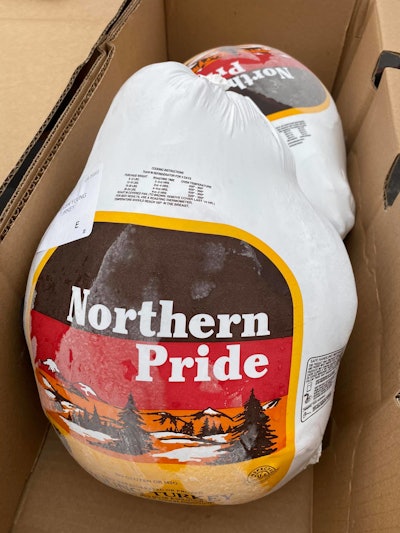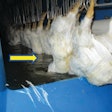
How much water is used during processing is one of the biggest areas of environmental focus for U.S. turkey cooperative Northern Pride Inc.
One way that Northern Pride could reduce its water usage is to switch from chilling the turkey carcasses with water to air chilling methods. However, Northern Pride’s new CEO, Hunter Miller, said the verdict is still out as to whether air chilling is actually more environmentally sustainable.
Miller, on November 8, was one of a handful of agrifood company leaders to take part in the second of two Perspectives on Protein Sustainability webinars, hosted by the Agricultural Utilization Research Institute.
“So (for) each live bird that comes through the plant, we have a calculation on how we can figure the gallons per bird that it takes to process that bird from when it arrives to the plant until it’s put in for finished goods. And we look at different technologies to use less water or reuse water,” Miller explained.
“This industry, in particular, in the past 15 years has devoted a lot of time and money into working on ways that we can process birds with less water. That’s one of the things that’s on our minds daily here.”
When Miller was asked directly about a change to air chilling, he said it is something that is being researched. But the cooperative wants to make sure that if a change is made, it is truly a more sustainable option.
“We do use water to chill our birds here at Northern Pride. Most of the industry does. There are several producers that are switching to air chilled. It has maybe some benefits as far as water consumption, but there’s higher energy usage and use of volatile chemicals … more ammonia that we would have to have on site. So, there’s advantages and disadvantages of the system,” he said.
“Air chilling would resolve the water issue, but we don’t know environmentally, with the increased usage of ammonia, how that plays out.”
Northern Pride has been consulting with a specialist on the matter to learn more, Miller added.
Prior to coming to Northern Pride, Miller had held leadership positions with Peco Foods, Pilgrim’s Pride, Bilinski Sausage and Freshwater Farms. Northern Pride announced in October that Miller has been hired as the new CEO.
According to Miller, Northern Pride, headquartered in Thief River Falls, Minnesota, is owned by about 20 producer owners and processes around 5 million turkeys annually. The cooperative formed in 1989 when the owners purchased its processing plant from Land O’Lakes.
According to information from the WATTPoultry.com Top Poultry Companies Database, Northern Pride ranks as the 18th largest turkey producer in the United States.



















